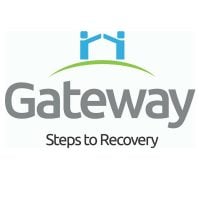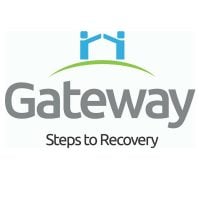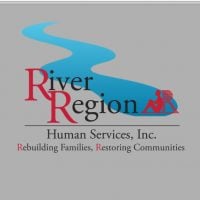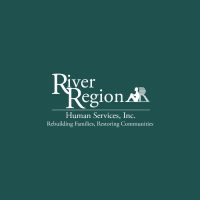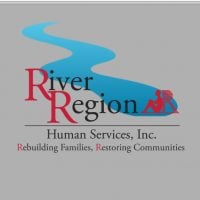Naval Hospital
Drug Rehab Center in Jacksonville, Florida
The Naval Hospital in Jacksonville, FL provides a range of addiction treatment services, such as detox, inpatient, outpatient, and intensive outpatient care, in a supportive environment and with insurance coverage options.
Naval Hospital in Jacksonville, Florida is a treatment facility specifically designed to support individuals struggling with alcoholism, substance abuse, and opioid addiction. Offering a range of levels of care, including detox, inpatient, outpatient, and intensive outpatient programs, Naval Hospital welcomes individuals seeking help and support on their journey to sobriety. With a focus on treating these addiction disorders, Naval Hospital strives to provide a safe and supportive environment for recovery.
At Naval Hospital, patients can expect to receive comprehensive treatment for their addiction and substance abuse issues. The facility employs various evidence-based treatment methods, including therapy sessions, group counseling, and individual counseling, to address the unique needs of each patient. Additionally, holistic approaches such as mindfulness exercises and wellness activities are integrated into the treatment plans. By combining medical expertise with compassionate care, Naval Hospital aims to guide individuals towards long-term recovery and a healthier lifestyle.
Genders
Ages
Modality
Additional
Conditions and Issues Treated
Substance abuse is the excessive use of any drug. This includes alcohol, medications, and illegal drugs. Substance abuse is treated with a combination of physical and mental treatments. Patients detox and follow up with therapies that target the underlying cause of the addiction. Substance abuse is a severe problem that can be successfully treated with a variety of therapies. Naval Hospital treatment uses a combination of therapies along with other resources to overcome substance abuse.
Opioid addiction treatment should be done in a medically supervised drug rehab. While taking opioids, users will typically use other substances to enhance the effects of opioids or to reduce the adverse effects of opioid use. Opioid addiction treatment will include detoxification and drug rehab counseling to help both the user and their loved ones learn how to live a successful sober lifestyle.
Treatments such as methadone, buprenorphine, and naltrexone are three medications that can help treat opioid addiction. These drugs work on the brain’s pleasure center and reduce cravings and the effects of illicit opioids such as heroin. These drugs can be either given orally or by injection. Individual drug rehab counseling sessions can be helpful to discuss any questions or concerns with the drug treatment program. This counseling will also help the user set goals for when they finish drug rehab.
Opioid addiction recovery is a long process. Many of the changes to the brain caused by opioid use cannot be undone, but with time and the proper treatment, a person can return to normal function. After detox, treatment will include drug rehab counseling and entering a halfway house or sober living community. Aftercare is critical to long-term recovery, as it helps the user avoid relapsing and entering back into drug rehab.
Levels of Care Offered
This center offers a variety of custom treatment tailored to individual recovery. Currently available are Detox, Inpatient, Intensive Outpatient, Outpatient, with additional therapies available as listed below.
An addict may have to go through alcohol or drug withdrawal. While detox may be uncomfortable, it is not life-threatening. Detoxification allows the addict to rid the body of all traces of drugs or alcohol and gives the addict a clean slate for their recovery. In an inpatient or outpatient setting, detox can be managed medically.
Inpatient treatment for alcoholism or drug addiction is an option that provides the addict with a supportive environment in which they can stop using. This type of treatment is appropriate for addicts that are most in need of intensive care and supervision. This includes those who were unable to quit on their own, those who need more structure than they can get in outpatient treatment.
Intensive outpatient treatment is a type of comprehensive addiction care. Unlike conventional residential treatment programs, the patients live at home during the recovery process. This means that one can continue working and caring for their families. These also allow people to keep pursuing their studies while also working on their sobriety.
Outpatient treatment can help one transition to normal life from the round-the-clock supervision and treatment available during inpatient treatment. It is an excellent tool to ensure long-term recovery. However, it is essential to note that intensive outpatient treatment in itself does not remove patients from the real-world setting. This means there’s always a higher risk of coming across environmental triggers. To further prevent relapse, an outpatient treatment center should be able to provide ongoing support services.
Once the patient is enrolled in an intensive outpatient treatment program, they will be expected to attend therapy and group meetings daily for a stipulated period. The frequency and duration of each session will depend on the patient’s needs and level of addiction. This can help curb the habit and deal with underlying issues that led to it. Most of these professional treatments are designed to allow patients to structure their daily schedules in a way that is conducive to recovery.
“Outpatient treatment is ideal for those who have a lower intensity addiction. It’s also suitable for those with a supportive environment and those on a tight budget.
Outpatient treatment can be considered the lowest intensity level of addiction treatment. It is ideal for early phase addiction or lower intensity addictions. It may involve weekly sessions instead of daily. Peer group support, 12-step programs, and individual counseling may still be used and anti-addiction medication.
Therapies & Programs
Group therapy is held in a safe, controlled setting where patients can feel comfortable sharing their struggles and gaining perspective through shared conversations. It takes place in a group rather than one on one to prevent feelings of isolation or being unique in their situation while creating an environment for addicts at Naval Hospital to develop fellowship, accountability, and support. Group therapy is an important tool in recovery that prevents cravings that prompt a return to active addiction.
Payment Options Accepted
For specific insurance or payment methods please contact us.
Is your insurance accepted?
Ask an expert, call (888) 674-0062
Additional Details
Specifics, location, and helpful extra information.
Jacksonville, Florida 32214 Phone Number(904) 546-6302 Meta DetailsUpdated November 25, 2023
Staff Verified
There are no reviews yet. Be the first one to write one.
Jacksonville, Florida Addiction Information
Florida is one of the nation's epicenters for substance abuse and drug-related overdoses. In 2014, around 410,000 Florida residents were addicted to drugs and alcohol. Over the last 10 years, 12% of all deaths in the state were attributed to substance abuse. Treatment admissions for alcohol reached 24,329 patients in 2016, and 2.5% of Florida high school students admitted to using crack cocaine.
There are an estimated 15,000 people in Jacksonville who suffer from drug addiction. The number of overdose deaths has been on the rise, with 193 reported in 2017. This is leading to an increase in crime rates, and it is also causing problems for the city's businesses and families. Rational Recovery is a type of treatment that focuses on helping the individual develop a rational and healthy relationship with drugs and alcohol.
Treatment in Nearby Cities
- Deerfield Beach, FL (287.1 mi.)
- Clermont, FL (116.0 mi.)
- Punta Gorda, FL (228.9 mi.)
- Palm Beach, FL (263.4 mi.)
- Sebastian, FL (182.2 mi.)
Centers near Naval Hospital
The facility name, logo and brand are the property and registered trademarks of Naval Hospital, and are being used for identification and informational purposes only. Use of these names, logos and brands shall not imply endorsement. RehabNow.org is not affiliated with or sponsored by Naval Hospital.





